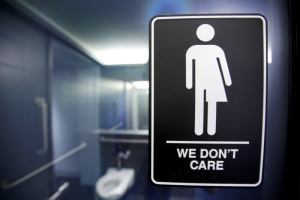In a major win for religious freedom, a Canadian court on Tuesday ruled that a Christian university that requires its staff and students to abstain from sex outside of marriage and homosexual behavior cannot be banned from having its law school accredited.
According to a press release made available to The Gospel Herald, the Nova Scotia Court of Appeal agreed with the lower court ruling that the Nova Scotia Barristers' Society (NSBS) did not have the statutory authority to reject Trinity Western's (TWU) proposed law school based on the university's Community Covenant, which requires students and faculty to "voluntarily abstain" from "sexual intimacy that violates the sacredness of marriage between a man and a woman.
"The society acknowledges that the [Charter of Rights and Freedoms] does not apply to Trinity Western. It is a private university. The Supreme Court has held that the charter does not apply even to an autonomous public university," reads the Court of Appeal's opinion.
"Nothing in the Legal Profession Act authorizes the society to issue an independent ruling that someone has violated Nova Scotia's Human Rights Act."
Speaking on Tuesday, Trinity Western spokeswoman Amy Robertson has said the covenant has "nothing to do with wanting to push away members of the LGBT communities."
"The community covenant is a core part of defining the TWU community as distinctly Christian," she said, according to CBC.
"We are not making a statement about LGBTQ people; we are making a statement about traditional Christian marriage, which is sacred to us. The same covenant calls for all members of the TWU community to respect the dignity of others regardless of their background.
The controversy began back in 2014, when the Barristers' Society became one of three provincial law societies to deny Trinity Western Law School's request for accreditation, the other two being the law societies of Ontario and British Columbia, because the school requires all students to follow traditional Christian sexual morality.
In turn, Trinity Western filed suit against the three provincial law societies that attempted to ban its accreditation, arguing that their decision violated the university's religious liberty.
In January 2015, Nova Scotia Supreme Court Justice Jamie S. Campbell ruled in favor of Trinity Western, arguing that the society's "resolution and regulation infringe on the freedom of religion of TWU and its students in a way that cannot be justified."
However, as reported earlier this month, a three-judge Divisional Court of the Ontario Superior Court of Justice ruled against the Christian university, claiming that their Community Covenant was discriminatory.
"The fact remains that the effect of the Community Covenant is to exclude certain persons from eligibility for all of the spaces available at TWU's law school," ruled the Ontario court.
"That reduces their opportunities for acceptance to law school in comparison with all other persons, and it does so on a discriminatory basis."
Trinity Western's "community covenant" also requires students to abstain from gossip, obscene language, prejudice, harassment, lying, cheating, stealing, pornography, and drunkenness.
The Vancouver Sun reports that the university has emphasized in the past that it does not ban admission to gay, lesbian, bisexual or transgender students or faculty, and has said its community offers "an environment in which sexual minorities are supported, loved and respected."
Tuesday's decision was praised by the Evangelical Fellowship of Canada, who referred to the ruling as a major victory for religious freedom.
"No one is disputing TWU's ability to provide an excellent law school education and produce graduates who will serve Canadians well," said Bruce Clemenger, President of The Evangelical Fellowship of Canada. "But this decision is a good reminder that TWU's policies and its Community Covenant are not unlawful. They are an expression of their deeply held religious beliefs."

















